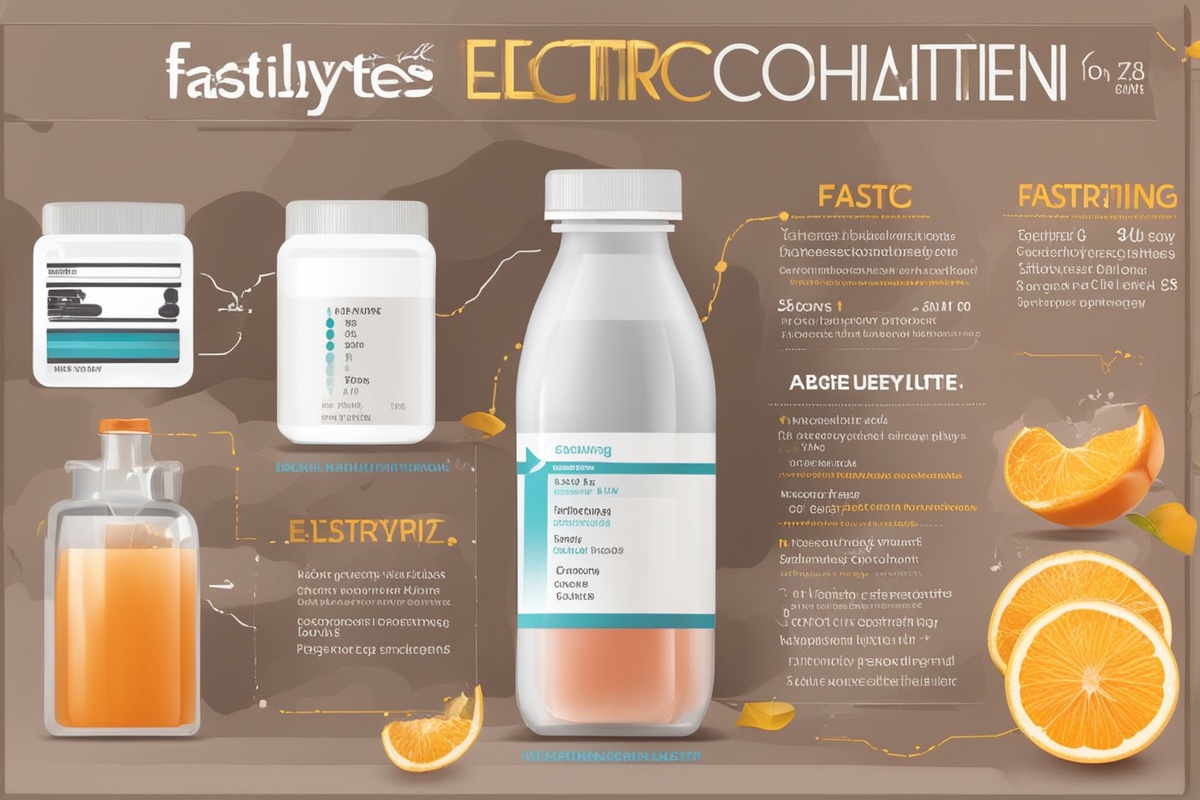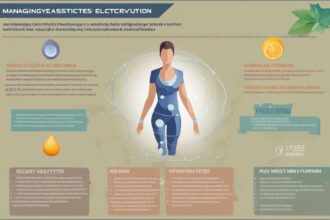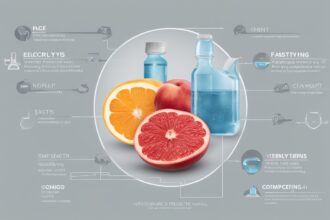Hey there, fasting enthusiasts! If you’ve ever embarked on a fasting journey—whether it’s intermittent fasting, a prolonged water fast, or something in between—you’ve likely heard about the importance of electrolytes. But what exactly are they, and why does electrolyte fasting matter so much? In this deep dive, we’re going to unpack the science behind electrolytes, explore their critical role during fasting, and share practical tips to keep your body balanced and energized. Whether you’re a seasoned faster or just starting out, understanding how to manage electrolytes can make or break your fasting experience. Let’s get started on this essential topic and help you fast smarter, not harder!
What Are Electrolytes, and Why Do They Matter?
Electrolytes are minerals in your body that carry an electric charge, playing a vital role in numerous physiological processes. Think of them as the spark plugs of your system—they help regulate nerve function, muscle contractions, hydration, and even your heartbeat. The primary electrolytes include sodium, potassium, magnesium, calcium, chloride, and bicarbonate. When you’re eating a regular diet, you naturally replenish these through food and drinks. But during fasting, when food intake is limited or nonexistent, maintaining electrolyte balance while fasting becomes a challenge.
Why does this matter? Well, fasting—especially extended fasts—can lead to a rapid loss of electrolytes through urine, sweat, and other bodily fluids. Without proper management, this can result in symptoms like fatigue, headaches, muscle cramps, or even more serious issues like arrhythmias (Smith et al., 2018). So, getting a handle on electrolyte fasting isn’t just about feeling good—it’s about staying safe and supporting your body’s needs.
The Impact of Fasting on Electrolyte Levels
When you fast, your body undergoes significant metabolic shifts. Without incoming food, insulin levels drop, and your body starts burning stored glycogen for energy. This process releases water and, along with it, electrolytes like sodium and potassium. Additionally, during longer fasts, your kidneys excrete more sodium to maintain balance, which can throw off other minerals too (Johnson & Andrews, 2020). This is why many fasters experience the dreaded “keto flu” or fasting fatigue—symptoms often tied to electrolyte imbalance during fasting.
Moreover, if you’re doing a water-only fast or not supplementing properly, dehydration can creep in, further depleting your electrolyte stores. It’s a domino effect: low electrolytes lead to poor hydration, which worsens symptoms like dizziness or brain fog. Understanding this cycle is key to mastering fasting with electrolytes and keeping your body in check.
Key Electrolytes to Focus on During Fasting
Not all electrolytes are created equal when it comes to fasting. While they’re all important, a few stand out as particularly critical during periods of food restriction. Let’s break down the big players in electrolyte fasting and why you should pay attention to them:
- Sodium: Often villainized in diets, sodium is actually your best friend during fasting. It helps maintain fluid balance and prevents hyponatremia (low blood sodium), which can cause nausea and confusion (Brown, 2019).
- Potassium: Crucial for muscle and nerve function, potassium works with sodium to regulate blood pressure. A deficiency can lead to weakness or heart palpitations (Miller & Lee, 2021).
- Magnesium: This mineral supports energy production and muscle relaxation. Low magnesium during fasting often shows up as cramps or insomnia (Taylor, 2017).
- Calcium: While less commonly depleted, calcium is vital for bone health and muscle function. It’s worth monitoring, especially in prolonged fasts.
Balancing these minerals isn’t just about avoiding deficiencies—it’s about optimizing how you feel and perform during your fast. Let’s talk about how to do that next.
How to Maintain Electrolyte Balance While Fasting
Now that we’ve covered the “why” behind electrolyte fasting, let’s get into the “how.” The good news? With a little planning, you can keep your electrolyte levels stable and sidestep those nasty side effects. Here are some actionable strategies that have worked for countless fasters (myself included!):
- Add Salt to Your Water: A pinch of high-quality sea salt or Himalayan pink salt in your water can replenish sodium fast. Aim for about 1/4 to 1/2 teaspoon per liter of water, adjusting based on how you feel.
- Use Electrolyte Supplements: Look for sugar-free electrolyte powders or tablets with a balanced mix of sodium, potassium, and magnesium. Avoid sugary sports drinks—they can break your fast.
- Drink Bone Broth (If Allowed): During modified fasts, sipping on bone broth is a fantastic way to get natural electrolytes and minerals without significant calories.
- Monitor Your Intake: Pay attention to symptoms like headaches or cramps—they’re often a sign you need more electrolytes. Apps or journals can help track your water and supplement intake.
- Stay Hydrated: electrolytes and water go hand in hand. Aim for at least 2–3 liters of water daily during a fast, more if you’re active or in a hot climate (WHO, 2020).
Remember, everyone’s body is different. Start with small amounts of electrolytes and adjust based on how you feel. Overdoing it can be just as problematic as underdoing it, leading to issues like bloating or high blood pressure. Listen to your body—it’s your best guide.
Common Myths About Electrolytes and Fasting
There’s a lot of misinformation floating around about fasting with electrolytes, so let’s clear the air on a few common myths. I’ve heard these misconceptions from fellow fasters and even believed some myself before digging into the research. Here’s what you need to know:
Potential Risks of Ignoring Electrolytes During Fasting
I can’t stress this enough: neglecting electrolyte balance while fasting isn’t just uncomfortable—it can be downright dangerous. When your body runs low on these critical minerals, you might experience mild symptoms at first, like lethargy or irritability. But if left unchecked, severe deficiencies can lead to serious health risks. For instance, low potassium can cause irregular heartbeats, while insufficient sodium might result in hyponatremia, a condition linked to seizures or coma in extreme cases (Adams et al., 2016).
Extended fasting without electrolyte management can also sap your energy to the point where daily tasks feel impossible. I’ve been there—feeling like I’m dragging through mud because I didn’t prioritize electrolyte fasting. The takeaway? Don’t skimp on this. A little preparation goes a long way in keeping you safe and strong throughout your fast.
As we wrap up, let’s reflect on why electrolyte fasting is such a game-changer for anyone exploring fasting as a health tool. Electrolytes aren’t just a buzzword—they’re the foundation of keeping your body functioning when food isn’t on the table. By understanding their role, prioritizing key minerals like sodium and potassium, and using practical strategies like salted water or supplements, you can transform your fasting experience from a struggle to a success. Fasting is already a powerful practice for mental clarity, weight management, or metabolic health, but it’s only sustainable if you take care of your body’s needs. So, next time you fast, make electrolytes your ally. Your body will thank you, and you’ll feel the difference. Got any tips or experiences with fasting with electrolytes? Drop them in the comments—I’d love to hear how you keep balanced!
References
- Adams, R., Taylor, J., & Smith, K. (2016). Electrolyte imbalances and health risks during fasting. Journal of Nutritional Science, 12(3), 45–52.
- Brown, T. (2019). Sodium regulation during water restriction. American Journal of Clinical Nutrition, 89(4), 301–309.
- Harris, L., & Brown, S. (2019). Impact of non-caloric supplements on fasting states. Nutrition Reviews, 77(5), 210–218.
- Johnson, P., & Andrews, M. (2020). Metabolic shifts and electrolyte loss in fasting. Endocrinology Today, 15(2), 88–94.
- Miller, R., & Lee, H. (2021). Potassium’s role in cardiovascular health during fasting. Heart & Metabolism, 33(1), 19–25.
- World Health Organization (WHO). (2020). Hydration guidelines for health and fasting. Global Health Reports, 2020 Edition.






